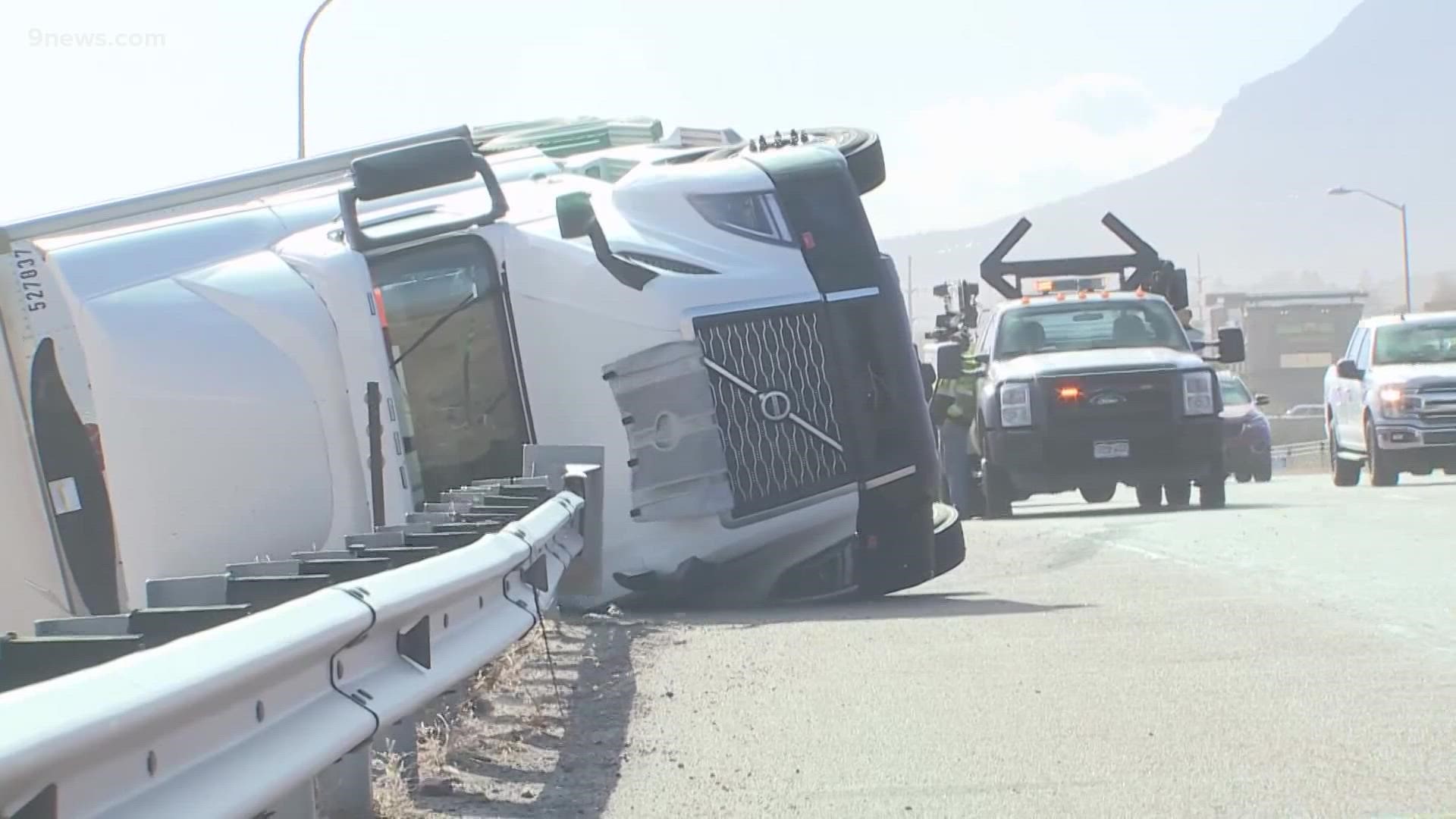DENVER — The wind isn’t just annoying. It can also be expensive.
Major highways and interstates were shut down throughout the day on Wednesday when the weather got too dangerous to drive. Colorado is uniquely designed for those closures to be especially impactful to trucks carrying millions of dollars worth of goods.
"Wind is not very good," said Greg Fulton, president of the Colorado Motor Carriers Association.
Fulton represents and advocates for the trucking industry in Colorado. Nearly 80% of Colorado towns get goods delivered solely by truck. When Colorado’s wild weather closes down roadways large and small, the impact is big.
"It has a substantial impact, probably more so in Colorado than in other states," said Fulton. "When you close something like I-70 out there, that translates into something like a 200 mile detour. It’s several hours."
I-70 closed down Wednesday morning in the mountains because of wind and snow. Commercial traffic was stopped on I-25 because of high winds. The National Weather Service reported wind gusts were around 60 miles per hour along Colorado's Front Range, and that was on the low end. On the high end, winds were nearing 100 miles per hour.
Colorado relies on those two main arteries, which are crucial for businesses across the country to get the goods they’re expecting.
Between 80% and 90% of all manufactured freight moves by truck in Colorado.
Diana Freyta has been in the logistics industry for more than a decade as a freight forwarder and is a student at Metropolitan State University of Denver. This season is especially busy.
"Every day is a busy day," said Freyta. "It’s crucial to be on time in our industry."
Wednesday’s closures were temporary. Others last longer.
Truckers had to make a several hundred mile long detour this summer around Glenwood Canyon when it was closed for weeks because of mudslides. It was the same the year before when there were fires.
Jack Buffington teaches Supply Chain Management at the University of Denver.
"This time of year, everything is significant. We’re in the sales season for a lot of suppliers," said Buffington. "If we can predict what’s going to happen we can plan for it and if we can’t we can’t. Lately a lot of these events have been unpredictable."
So, it wasn’t just windy Wednesday. It was costly, also.
"When these things happen, this is when we end up having shortages out there," said Fulton. "We start seeing significant delays, and people don’t get their Christmas packages on time."

